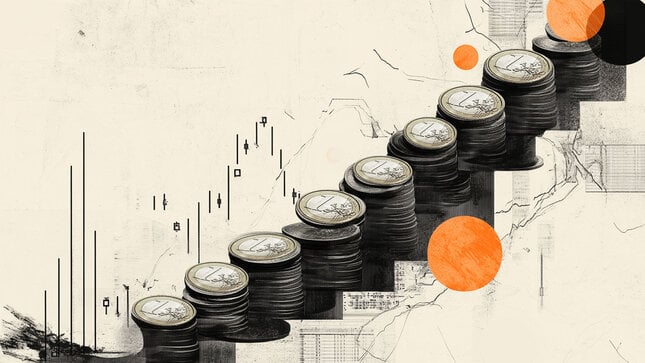#1. Always use a stop
Trading is timing. Just like sports. When you are wrong footed in tennis you don’t stand in your corner hoping that the ball will somehow come back so you can hit another volley. Same when you miss a kick in soccer, a throw in football or a hit in baseball or cricket. You take the loss and move on.
If you want to stay in the game, in trading you need to follow the exact same ironclad rules as you do in sports. For example if I trade on MetaTrader my execution scripts have stops and targets built-in. If I trade on TradingView I use custom made AutoHotKey scripts to do the same thing. If I trade equities I always use diagonal option spreads to express my view because that way the stops are embedded into the strategy. And if I am trading from my phone, I always set the stop right after I enter the trade then worry about setting exits next.
#2 Always have a plan
Sports are well defined games with a specific set of rules and you know in any sport what you are going to do next once you miss. In trading many people are lost when they are stopped out because they have no plan for what to do next.
I was only able to consistently respect stops once I figured out what I will do next in case of a stop out. Only then did my action become nearly automatic.
Instead of hoping that your trade is a winner, assume it will be a loser and ask yourself - what will I do then? Will I look for the same setup again? Will I move the setup to a different time frame? Will I use a different size? Will I widen my targets and stops? Regardless of what yo do always, always have a plan and then execute that plan. This way you won’t be wallowing in self pity of "woudda-coudda-shoudda" but will be looking forward to what comes next.
#3 Have confidence in the setup and let the details evolve
It doesn’t matter if you trade trend or fade trend. You need to have confidence in your broad setup and stop obsessively tweaking the strategy before trading it. K is a continuation trader and has been trading Zip for years. Her entry criteria are pretty much set in stone, but she is merciless on any trade that moves even a few pips against her. Therefore her stops and targets are very fluid. I trade reversals all day long with Bounce but I am ironclad in my attitude towards exits. I always wait for the stop and target to hit. Even if the trade comes within a 1/10th of a pip of the target and then reverses and stops me out I will reenter on the next setup and do the exact same thing because that is the only way that the math of my set up works.
Why do K and I trade so differently? Real market experience. We both have the ultimate confidence in our entry signals but have learned through countless hours of trial and error what exits work best for each of us. That information cannot be determined a priori. That’s why all backtests fail. You have to let the details evolve.
#4 Only ultra-low or ultra high Leverage
If you are actively speculating on margin then I don’t think there is any middle ground. You either trade like an insurance company and start with ultra low margin size so that you are able to absorb large losses and achieve a very high win/loss ratio (lots of small wins and one or two large losses) or you trade like the lottery taking highly leveraged bets hoping that you will get lucky and hit a long winning streak. (Side note - every single trading contest winner employs the lottery strategy - that is why you never see any of them repeat the feat more than one or two times in row).
Regardless of how you trade you need to know the rules before you start. Want to triple your account in a couple of months? Then trade high leverage and be prepared to lose all your money at least once or twice. Want to eke out profits almost every day? Then trade with ultra low leverage and aim for a few basis points per trade.
Those are your only two choices. Everything in the middle will just drain your money without any results. (Note - the operative word here is ACTIVE TRADING. If you are doing 3 or 4 trades per month, I am not talking to you)
#5 Be a traveler not a tourist
The great Anthony Bourdain who made so many wonderful travel documentaries, used to always say, “Be a traveler not a tourist”. What he meant was - get dirty. Don’t just follow the well worn paths of the guidebooks. Wander off on your own, explore the land, try out the food, talk to the locals. Make the journey your own.
Trading is very much the same way. We are all taught the same well known trading strategies. Never follow them blindly. The most successful traders in our room always modify both K’s and my ideas to make them their own. Every strategy is just a recipe. You need to adapt to your taste to truly enjoy it for life.
#6 Measure your performance at least one period forward
If you are day trading, never ask yourself - how did I do today? Rather, evaluate your weekly results. If you are swing trading, look at your quarterly results, not your monthly P/L. If you are investing - measure yourself in 3 year blocks of time.
My day trading became markedly better when I started to set weekly targets rather than daily goals which helped me to take the daily losses in stride. The more you move away from your immediate time frame the more you’ll be able to escape the recency bias ameliorating the manic/depressive cycle that affects us all.
The game is not about today, or tomorrow or even next year. The game is about succeeding in trading for life.
#7 One pip makes a big difference
If you are an active trader it’s amazing to realize the power of just one pip. If you do at least ten trades a day that’s about 2500 trades per year. If you can extend your profit target just by one pip more you’ve now made 25% extra on your account on an unlevered basis. Of course that’s utterly unrealistic because the example assumes that every trade is a winner, but the bigger point still stands. Tiny improvements can yield massive performance differences if they are compounded over time. $100,000 at 10% compounds to about $250,000 in 10 years, but manage to squeeze just one pip more and add 5% per annum to that return and now your end result is $400,000. That’s no chump change from just a teeny, wheeny, tiny improvement in execution.
Past performance is not indicative of future results. Trading forex carries a high level of risk, and may not be suitable for all investors. The high degree of leverage can work against you as well as for you. Before deciding to trade any such leveraged products, you should carefully consider your investment objectives, level of experience, and risk appetite. The possibility exists that you could sustain a loss of some or all of your initial investment and therefore you should not invest money that you cannot afford to lose. You should be aware of all the risks associated with trading on margin, and seek advice from an independent financial advisor if you have any doubts.
Editors’ Picks

EUR/USD treads water above 1.1850 amid thin trading
EUR/USD stays defensive but holds 1.1850 amid quiet markets in the European hours on Monday. The US Dollar is struggling for direction due to thin liquidity conditions as US markets are closed in observance of Presidents' Day.

GBP/USD flat lines as traders await key UK and US macro data
GBP/USD kicks off a new week on a subdued note and oscillates in a narrow range near 1.365 in Monday's European trading. The mixed fundamental backdrop warrants some caution for aggressive traders as the market focus now shifts to this week's important releases from the UK and the US.

Gold sticks to intraday losses; lacks follow-through
Gold remains depressed through the early European session on Monday, though it has managed to rebound from the daily trough and currently trades around the $5,000 psychological mark. Moreover, a combination of supporting factors warrants some caution for aggressive bearish traders, and before positioning for deeper losses.

Bitcoin, Ethereum and Ripple consolidate within key ranges as selling pressure eases
Bitcoin and Ethereum prices have been trading sideways within key ranges following the massive correction. Meanwhile, XRP recovers slightly, breaking above the key resistance zone. The top three cryptocurrencies hint at a potential short-term recovery, with momentum indicators showing fading bearish signs.

Global inflation watch: Signs of cooling services inflation
Realized inflation landed close to expectations in January, as negative base effects weighed on the annual rates. Remaining sticky inflation is largely explained by services, while tariff-driven goods inflation remains limited even in the US.
RECOMMENDED LESSONS
Making money in forex is easy if you know how the bankers trade!
I’m often mystified in my educational forex articles why so many traders struggle to make consistent money out of forex trading. The answer has more to do with what they don’t know than what they do know. After working in investment banks for 20 years many of which were as a Chief trader its second knowledge how to extract cash out of the market.
5 Forex News Events You Need To Know
In the fast moving world of currency markets where huge moves can seemingly come from nowhere, it is extremely important for new traders to learn about the various economic indicators and forex news events and releases that shape the markets. Indeed, quickly getting a handle on which data to look out for, what it means, and how to trade it can see new traders quickly become far more profitable and sets up the road to long term success.
Top 10 Chart Patterns Every Trader Should Know
Chart patterns are one of the most effective trading tools for a trader. They are pure price-action, and form on the basis of underlying buying and selling pressure. Chart patterns have a proven track-record, and traders use them to identify continuation or reversal signals, to open positions and identify price targets.
7 Ways to Avoid Forex Scams
The forex industry is recently seeing more and more scams. Here are 7 ways to avoid losing your money in such scams: Forex scams are becoming frequent. Michael Greenberg reports on luxurious expenses, including a submarine bought from the money taken from forex traders. Here’s another report of a forex fraud. So, how can we avoid falling in such forex scams?
What Are the 10 Fatal Mistakes Traders Make
Trading is exciting. Trading is hard. Trading is extremely hard. Some say that it takes more than 10,000 hours to master. Others believe that trading is the way to quick riches. They might be both wrong. What is important to know that no matter how experienced you are, mistakes will be part of the trading process.
The challenge: Timing the market and trader psychology
Successful trading often comes down to timing – entering and exiting trades at the right moments. Yet timing the market is notoriously difficult, largely because human psychology can derail even the best plans. Two powerful emotions in particular – fear and greed – tend to drive trading decisions off course.
